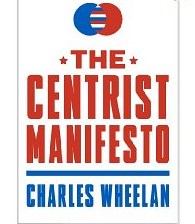 The postmodern revolution has been transmutating America since JFK’s assassination, with cultural precursors dating back to the Korean War or earlier. Our responsibilities as Americans oblige us to respond. As stewards invested with some power of citizenship, a civic response to the Gospel is among our religious duties as Christians.
The postmodern revolution has been transmutating America since JFK’s assassination, with cultural precursors dating back to the Korean War or earlier. Our responsibilities as Americans oblige us to respond. As stewards invested with some power of citizenship, a civic response to the Gospel is among our religious duties as Christians.
In the process of responding at this late date, what tack should we take? Is moderation indicated? After half a century, postmodernism has advanced far into the consolidation phase. And so, are the faults, failings and usurpations by the regime radical enough that they call for radical redress?
Webster defines radical as follows:
Of or from the root or roots; going to the center, foundation, or source of something; fundamental; basic; as, a radical principle.
 There will be plenty of citizens disinclined to embrace anything suggestive of immoderation or extremism. A case in point is Dr. Charles Wheelan, a Senior Lecturer in Economics at Dartmouth; formerly a Democratic candidate in 2009 for a seat in Illinois’ 5th congressional district (greater Chicago area). Now living in New Hampshire, Wheelan has founded the Centrist Project. His latest book is The Centrist Manifesto (WW Norton, 2013), 138 pages.
There will be plenty of citizens disinclined to embrace anything suggestive of immoderation or extremism. A case in point is Dr. Charles Wheelan, a Senior Lecturer in Economics at Dartmouth; formerly a Democratic candidate in 2009 for a seat in Illinois’ 5th congressional district (greater Chicago area). Now living in New Hampshire, Wheelan has founded the Centrist Project. His latest book is The Centrist Manifesto (WW Norton, 2013), 138 pages.
Someone could write an entire book defining the term “moderate,” while distinguishing it from related approaches like “centrist,” “independent,” “nonpartisan,” or “compromising,” and from more distant concepts like “neutral” or “noncommittal.” Rather than expand this article to book length, however, I propose to take Wheelan’s work and link it to what many Americans, especially secularists, take as moderation. The Centrist Manifesto will be useful, then, as a provisional benchmark for comparing and contrasting more religious and more radical approaches to an almost universally recognized need for reform.
I think most Americans, including centrists, acknowledge that “something has to change” (Wheelan, p. 11):
Our country is on a dangerous trajectory. We are mired in serious policy challenges, in large part because the political process has moved beyond gridlock to complete paralysis.
To address political maladies, like the reality that “the choices among candidates are often awful, and our mainstream political parties are ossified and outdated” (p. 33), Wheelan recommends the new political party, The Centrist Party. It can operate most effectively, he calculates, as a power broker in the U.S. Senate (pp. 124-131), between what are now “‘two bankrupt parties bankrupting the country.’” “A Pox on Both Their Houses,” Wheelan declares, because they let extremists dominate intraparty affairs. His solution is to force Democrats and Republicans in the Senate to bargain with moderates standing firmly in the center.
Wheelan treats more radical proposals – like an Article V Convention of the States – with stone silence. As for term limits, Wheelan is also silent. He may suppose that rotation in office would do nothing to “cut loose the ideological tails” of the two major parties, a key feature of the centrist strategy. Perhaps Wheelan fears that term limits might even help Tea Party ideologues, whom he lambasts as follows (p.66):
the Tea Party conservatives and their right-wing brethren tend to have a theological view of governance that is oddly impervious to facts and data. [It is] a dangerous approach to science-based issues like evolution and climate change.
Wheelan’s centrist approach toward reform is to work within the existing system, exploiting the impossibility of gerrymandering at-large U.S. Senatorial constituencies for the purpose of excluding moderates (p. 124). This strategy is a bit byzantine. Essentially it turns on reforming American politics by means of the Centrist Party winning pluralities which elect initially four or five committed Senators. It only takes a handful of Senators, he calculates, to act as “gatekeepers for the entire federal government” (pp 122, 128-131). By wielding a sort of veto power – when, as often happens, the other 95 Senators are about evenly split between Republicans and Democrats – this core group could control things from its middle position. It may be that Wheelan dreads a nonpartisan factor like term limits, lest it disrupt the centrist equation.
But his reforms do not end with the polity; he proposes to transform the culture as well. On the assumption that most Americans want a moderate, “non-absolutist” policy on social issues, the Centrist Party platform would espouse “safe and legal access to abortion” (including abortificants), more access to contraception, and more comprehensive sex education. From Wheelan’s moderate secular standpoint, any campaign to outlaw abortion is an extremist “fool’s errand” (p. 111)
Wheelan’s readers are told to see the Centrist Party platform as moderate in approach, because it does include a concession to pro-lifers, namely a waiting period prior to abortion (pp. 109-110). But secular moderates grant very moderate concessions indeed to Judeo-Christian ethical concerns, lest moral and religious values intrude into political decisions. On other issues as well, the centrist platform would mandate a sort of middling secularism to prevent socially conservative “crazies” (p. 120) from, for example, “ensuring that schoolchildren pray in public schools” (p. 61).[1]
Likewise on same-sex-marriage, a recurrent theme in Wheelan’s book[[2]]: “For the Centrists, there is no need to compromise on this issue because there is no intellectually legitimate difference of opinion” (p. 106). A certain amount of compromise with “traditional conservatives” like Ayn Rand and Barry Goldwater might be okay; but don’t give the time of day to the “really, really bad” conservatives (pp. 61-64) like Rick Santorum and Paul Ryan – both practicing Catholics and KC’s, by the way.
A return to anything resembling the Judeo-Christian paradigms that governed society before 1962-63 (when SCOTUS excluded Bible and school prayer from public schools) would constitute a radical U-turn from the “progressive” direction that America has pursued over the past half-century. To counter 50 years of evolution (or rather devolution) in church-state relations would be seen by centrists as immoderate and counterrevolutionary. Instead the objective is to “finesse” the social issue divide in America by entirely excluding government from such decisions (p. 73).
Wheelan gives little consideration to decentralization out of Washington D.C. to the States, however, nor does he even entertain the idea of letting the matter of religion in schools be decided in the 15,000 school districts, rather than by an iron decree in the negative imposed uniformly (via usurpation) upon the entire nation by the courts. Click here for details on a plan for decentralization re this issue.
Not only does Wheelan show no interest in mandating judicial restraint on church-state questions, but he says nothing, and would doubtless oppose, radical solutions to the subverting of the old principle that ours is a Republic of laws not men. In my view, the oligarchy of nine lawyers bedecked in the black robes of a usurping Judicial Branch must be returned to their proper place if we are to bequeath democratic institutions to our children and grandchildren. See my comparatively radical proposals for bolstering Article III, section 2 of the written Constitution – re a removal of specified jurisdictions from Federal Courts.
Furthermore, Wheelan opposes overturning Roe v. Wade. To do so would be immoderate, he indicates, because “one of the important pillars of constitutional law is respect for precedent.” Also, radical pro-lifers are forgetting that abortions would still “be performed illegally (and often unsafely) in states that criminalized the procedure” (pp. 111-112).
 My own relatively extremist view is that the US Constitution should be fully purged from association with the shedding of innocent blood. Let us amend the Constitution to make all forms of abortion felonious, at the same time leaving enforcement exclusively to the States. In deep blue States most people might be inclined to reduce penalties for performing an abortion to the level of a jaywalking fine, or just a warning ticket. Whereas in red States citizens could use the democratic processes to impose more serious consequences, with penalties graduated downward for the exceptional cases (rape, incest, life of the mother, & etc.).
My own relatively extremist view is that the US Constitution should be fully purged from association with the shedding of innocent blood. Let us amend the Constitution to make all forms of abortion felonious, at the same time leaving enforcement exclusively to the States. In deep blue States most people might be inclined to reduce penalties for performing an abortion to the level of a jaywalking fine, or just a warning ticket. Whereas in red States citizens could use the democratic processes to impose more serious consequences, with penalties graduated downward for the exceptional cases (rape, incest, life of the mother, & etc.).
On Second Amendment rights and national sovereignty Wheelan also advocates for his centrist positions: “Recreation and self-defense” are the purposes of the Second Amendment. Significantly he omits the prime purpose indicated by the Framers, i.e. that an armed citizenry is the most effective check to government oppression and despotism. Neither do moderates like to recognize the implicit right to revolution in the Ninth Amendment.
Furthermore, Wheelan reassures us, obligatory registration of guns poses no realistic danger of leading to confiscation. Such threats are myths, says he, spread by the National Rifle Association (p. 119). He urges us to eschew extremists’ fears, for on this issue “there is no such thing as a slippery slope.”
Similarly, Wheelan wants us to view national sovereignty through a moderate lens. Disavow extremist paranoia about ceding reasonable degrees of authority to the United Nations or other transnational institutions. “We need a new generation of international organizations with the capacity and authority to enforce an updated global rulebook for twenty-first-century issues” (p. 95).
My own view, however radical, is that national sovereignty must be reinforced with a constitutional amendment stating in part:
Being subordinate only to God, the U.S. Constitution supersedes any international laws, treaties or protocols insofar as they pertain to the United States. No international organization may deprive the American people of their authority to make sovereign decisions through their elected representatives.
National sovereignty is an old principle over which we fought the American Revolution. But self-styled pragmatists are not so concerned about principles, especially those which they see as antiquated throwbacks to a primitive age.
Wheelan, wants to see “young, pragmatic leaders from around the country” so that his centrist reforms will work. He himself is under 50. On the issue of gay marriage he goes so far as to say that, “in twenty years, this won’t be a mainstream issue.” Why? Because “young people will get older; old people will die” (p. 106).
Evidently basic values have changed. It used to be that counsel from elders in society was eagerly sought. Elder statesmen were thought to be like anchors, serving to secure ships of state against storms. A key element in moderation was the experience and the wise guidance that often accompanies a head of gray hair. As Homer put it in the Iliad: “Young Men’s minds are always a-flutter; but when an old man is there, he looks both before and behind, to see that the best is done for both sides.”[3] Or as per Pope Francis’ prayer request this month:
That the Church and society may respect the wisdom and experience of older people.
But in a peculiar twist – fitting in a perverse sort of way – we have secular “moderates” looking to disown their elders, or even anxiously anticipating their death, lest society discriminate between natural intercourse and unnatural sex. That’s right, my fellow Americans. In order to give political affirmation to men sodomizing each other, leftists and centrists exhibit an unnatural longing for your grandparents’ generation to die out.
I’m reminded of the episode described in Holy Scripture. In the late 10th century, B.C., Solomon’s son, Rehoboam, assumed the throne of Israel. Prudently he sought counsel on how best to rule. But faced with contradictory advice from the elders, and from “the young men who had grown up with him and were serving him,” the young king made a foolish choice. Essentially what the elders told him was that he should govern the people in a compassionate and genuinely moderate way. But “Rehoboam forsook the counsel of the old men” (1st Kings 12:8) and followed his youthful peers’ preference for harsh and oppressive measures. As a result the kingdom was divided and left vulnerable to nearby nations, like the Assyrians and the Babylonians, who would impose tyranny and grief upon the Jewish people.
Unless I misread the signs of postmodern times, a lot of suffering is in store for the American people. The “moderate” secular reforms of the Centrist Part platform will not avert the looming disaster. Under God, however, there is good hope for reprieve if we are willing to adopt deep-cutting measures which in no way offend our longtime Benefactor (Annuit Coeptis), and which proceed in a spirit as radical and fundamental as the Declaration of Independence, “with a firm reliance on the Protection of Divine Providence.”
In 1776, Thomas Paine wrote in Common Sense that the moderates seeking reconciliation with King George III were more prone to harm the American cause than were politicians driven by self-interest, weakness, or prejudice.
…all those who espouse the doctrine of reconciliation (with the British government) may be included within the following descriptions. Interested men, who are not to be trusted; weak men, who cannot see; prejudiced men, who will not see; and a certain set of moderate men…; and this last class, by an ill-judged deliberation, will be the cause of more calamities to this continent, than all the other three. Thomas Paine, Common Sense (1776)
I postulate that the postmodern regime in America puts us at greater peril than what Paine and his peers faced during the Revolutionary era. The British occupation force in 1776 had no inclination to destroy the Christian religious heritage they held in common with their thirteen colonies. King George III himself espoused Christianity, not paganism.
Our adversary is more like what Judas Maccabeus and his fellow insurgents had to contend with in ancient Israel. The occupying Greeks (the “enlightened” Seleucid regime) bore the gift of cultural modernization; and they were not about to let their crash program of diversification run afoul of an old time religion intolerant of pantheism. As per Antiochus, the Greek king, …
They must be civilized.
They must be made to have more gods than one;
and goddesses besides….
So shall this Hebrew nation be translated,
their very natures and their names be changed,
And all be Hellenized. [H.W. Longfellow, Judas Maccabaeus 1.1]
Today, our plight resembles that of the Macabees,’ insofar as a top-down revolution is altering America according to novel secular standards. Innovations are being shoved down our throats, compared to which taxation without representation looks mild.
Old forms, however venerable or sacred, are expected to bow down before the new ways. Resisting this postmodern revolution brings persecution, some of it relatively soft in the form of ostracizing or firing non-compliant workers. Harsher forms of persecution include law suits, court orders and, if necessary, the police.
If you run a bakery, for example, or a florist shop, try refusing to provide assistance to a same-sex wedding. If you teach World History in a public high school, prepare to see your contract lapse if you assign the Ten Commandments for memorization. If you clerk in a convenience store and refuse to ring up a pornographic magazine, then consider yourself fortunate if you’re not fired, classified as insubordinate, and rendered ineligible for unemployment compensation.
The centrist course would be accommodation. By contrast, Hanukkah celebrates resistance:
With his family and followers Judas Maccabeus took to the hills to fight, not only against the occupying power but also against “renegades,” the Jews opting for moderation, i.e. cooperation with the Seleucid regime.[4] By the grace of God, restoration of Jewish independence from the Greeks, and from their pollutions, did in fact come to pass.[5]
The counterrevolution succeeded, no thanks to Israeli moderates.
ENDNOTES
[1] The Centrist Manifesto, p. 61.
[2] SSM: p. 19, 61, 64, 104, 106.
[3] The Iliad 3.108, tr. W.H.D. Rouse (NY: Mentor Books, 1960), p. 41.
[4] 1 Macabees 1:11-15, 34; 2:44; 3:5-6.
[5] Following the death of Mathathias, “Judas cast their enemies out of the country, and put those of their own country to death who had transgressed its laws, and purified the land of all the pollutions that were in it.” Flavius Josephus, The Antiquities of the Jews, 12.6.3-4.



